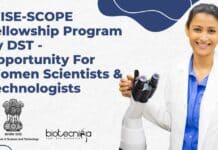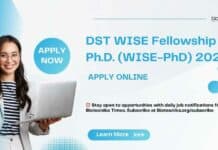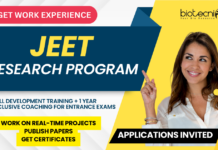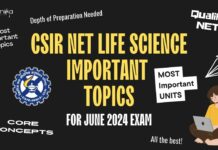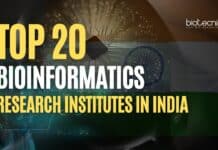DBT and PrakashLab announce a Request for Proposals for wide use of the Foldscope as a research and education tool: Democratising Science through a Major Twinning Programme of the North East with other parts of India.
The Department of Biotechnology (DBT), Ministry of Science and Technology, Government of India in partnership with Foldscope Instruments Inc. and PrakashLab (Stanford), invite applications under this Request for Proposals from teachers, scientists and community members across India for the use of foldscope as an educational, training or research tool as detailed below.
Selected applicants will be awarded with Foldscope and a small grant, and preference will be given to government schools and colleges in resource constrained environments. The selected applicants will be twinned with the North East region of India for exchange of idea and students under the programme. All proposed acitivities of the successful proposals will be mirrored in a school/college of the North East; likewise all successful proposals from NE will mirror activities in school/colleges from rest of India.
The North East of India is a global biodiversity hotspot. In order to connect the NE and understand the value of its rich biodiversity, ecology and environment as vital for the life of
our planet, all successful projects, from the NE states and from states from rest of India will be twinned by the North-East Region_ Biotechnology Programme management Cell (NER-BPMC) DBT.The school/college twinning will also have a long term social impact towards sharing of a national and global purpose in environmental, ecological, social and scientific matters. With such twinning, Indian youth can lead in sustainable development of our planet and in eco-science.
About Foldscope, Social Microscopy, and the Call for Proposals:
The Foldscope is an ultra-affordable paper microscope inspired by origami. The instrument’s optical quality, durability in the field, price, and versatility make it a powerful scientific tool. Foldscopes are especially useful where larger, expensive instruments are impractical due to cost, size, complexity and availability to the community. Especially when combined with the power of cellphones to record images and video, Foldscope provides an incredible scientific tool for citizens and researchers around the world.
From infectious microorganisms that affect human health to the microscopic eggs of pests that infest agricultural crops, many problems in the world arise from causes which can only be seen with a microscope. We are looking for motivated individuals and teachers to take on a research or educational project that will benefit from the use of Foldscopes. In doing so, we hope to expand efforst in the field of “citizen microscopy,” which is the open sharing of microscopy observations, data, and ideas that occur when scientific resources such as the Foldscope are made available widely, both inside and outside of academic settings To know more about Foldscope, see www.foldscope.com, and to see thousands of experiments already uploaded by Foldscope users, visit http://microcosmos.foldscope.com
This Call for Proposals invites proposals which demonstrate the use of Foldscope as an:
Category A. Educational and training tool
School teachers can submit proposals for:
- Teaching students (class 3-12) the basics of microscopy, environmental science, biology, etc., using Foldscope as a tool
- “Micro-” research projects performed by students using Foldscope as an educational tool (e.g. cataloguing the microflora/microfauna of surrounding water bodies)
Category B. Research tool:
Applicants motivated by research questions can submit proposals for:
- Using Foldscopesto answer a question in basic research (e.g. how does cellular communication happen between Tetrahymena ciliates?)
- Using Foldscopes to answer a question related to human health (e.g. what aquatic conditions are favorable/harmful for the propagation of infectious nematodes?)
Category C. Crowd-sourcing science tool
Applicants not interested in pursuing their own teaching or research question, but still interested in using Foldscopes for a citizen-science endeavor, are encouraged to apply under this category to receive two Foldscopes for the purpose of contributing to a citizen science project that will be specified by DBT and Foldscope Instruments/PrakashLab.
Who Can Apply?
- Category A: Teachers from schools from all over India, with a clearly defined cohort of students who can be from across classes, subjects and disciplines. Please see Annex I for Format.
- Category B: Anyone with a clearly defined research project, not limited to those affiliated with universities/research institutions. The organisation will have to be registered with the Government of India for funds to be transferred. Please see Annex II for format
- Category C: Anyone interested in the use of Foldscopes for a citizen science project
When proposals are due and what information must they contain?
All complete applications will be received by May 31, 2017 decisions announced by end of July 2017. The projects can start in August 2017.
Category A proposals must include:
A. Teaching Plan that details how Foldscopes will be used in the science-education.
B. The Teaching Plan should include the subject or principles being taught and detail how Foldscopes will be used in a classroom setting. (Please See Annex I for the format)
Category B proposals must include:-
A. The Research Plan (not more than 500 words) that directly addresses the role of microscopy in answering the questions being asked.
B. The Experimental Details Plan should detail experiments which will be required to answer the questions or test a hypothesis (not more than 500 words). Remember that the research plan should to be reasonably achievable in a one year time period. (Please see Annex II for Format)
Category B proposals will be judged according to:
i. Significance: Is the question being asked important for basic science, human welfare or for an interesting application?
ii. Organization: Do the proposed experiments directly address the question being asked?
iii. Uniqueness: Will the proposed research contribute to new understanding/exploration?
iv. Feasibility: Can the proposed project be completed within a one-year time frame?
v. Community engagement: How does the applicant plan on engaging both local community and the global Foldscope community over the course of their research?
vi. Categories: While proposals are not limited to specific subjects, if your proposal does fall under one or more of the following categories, please mark the relevant categories on the application. Biodiversity, Microorganisms and Human Health, Air Quality, Agriculture, Sanitation, Ecology, Plant Biology
Category C proposals, applicants must briefly discuss how they will contribute to the following citizen science project.
If your proposal is successful:An expert committee will evaluate the proposal, and the successful proposals will be provided funding (as detailed above) and a sufficient number of Foldscopes (the number may be proposed by the applicant but will be decided by the committee as they deem necessary for the project). This will be communicated to the applicant.
You will be required to document your work in the following three ways:
- One-page written updates on the progress of your project, to be submitted to DBT and Foldscope Instruments/PrakashLab every sixth months. These may include attached photographs, data, or experimental outlines.
- Regular posting about the project on microcosmos.foldscope.com. The first post should introduce who you are and why you are interested in pursuing your project. Subsequent posts should present the results of your research/teaching program, even including negative results and experiments that did not work as hoped.
- A final summit for teachers and researchers where you will present a poster on your project.
Further information and reference documents:
For information about Foldscope: http://www.foldscope.com
The Foldscope community website, where global users have described applications of the Foldscope: http://microcosmos.foldscope.com
Annex I:
Format for Category A
- Name and address of the school:
- Whether School is government aided:
- Bank details of the school:
- Name of the teacher/s and subject area:
- Address of the lead Teacher with contact number (landline/cell number, email):
- Cohort of students define number of students, subjects (should preferably across all subjects including humanities and commerce), class (should again be a mix of all classes)
- Theme of the project (whether teaching/research/ both):
- Define the theme (Not more than 500 words):
- Define a work plan which includes activities (field trips/ competitions etc) (Not more than 2 pages)
Annex II
Format for Category B
- Name and address of the organisation:
- Bank details of the Organisation:
- Name and Address of the PI with contact details (landline and cell number, email)
- Category/Theme of the project: (Biodiversity, Microorganisms and Human Health, Air Quality, Agriculture, Sanitation, Ecology or Plant Biology)
- Objective (0ne line):
- Research and Experiment details plan (not more than 500 words each):
- Significance ( not more than 100 words)
- Feasibility (Whether possible in one year) and Timelines for the proposed activities:
How to Apply:
Applications in the relevant format (Annex I and Annex II) will be submitted by May 31, 2017, through email to [email protected] with copy marked to [email protected] and [email protected]
For further information please get in touch with:
Dr Madhan Mohan
Adviser, NER-BPMC
Email : [email protected]
Dr Shailja Vaidya Gupta
Director, International Cooperation
Email: [email protected]
Last Date of Application May 31, 2017




























